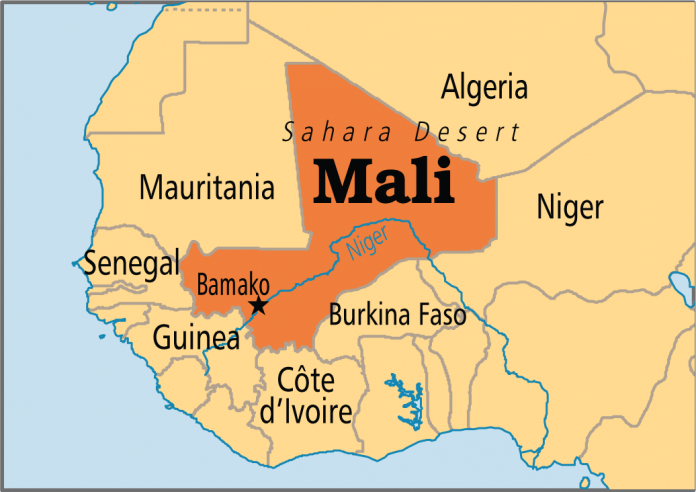International Relations
Military Coup in Mali
- 21 Aug 2020
- 5 min read
Why in News
Recently, Mali's President Ibrahim Boubacar Keita has resigned after soldiers had arrested him and Prime Minister Boubou Cisse in the capital, Bamako as part of a coup.
- It has prompted its West African neighbours to threaten border closures and sanctions against the coup leaders.
Key Points
- Background: The 2011 crisis in Libya led Mali along the path to chaos.
- Weapons from Libya were supplied across the Sahara Desert and fuelled a separatist conflict in northern Mali. This turned into an Islamist militant offensive which prompted a coup in the capital Bamako (Mali).
- Reasons: Mali has three overlapping sets of problems:
- Political crisis that grew out of the disputed legislative elections of March 2020.
- Economic crisis due to economic stagnation, corruption and further complications by the Covid-19 pandemic. There was dissatisfaction among the troops due to poor payments.
- Security crisis due to the failure to contain terrorism and jihadists and the actions of the military against civilians.
- Military Coup: It calls itself the National Committee for the Salvation of the People and has pledged to stabilise the country by enacting a political transition and stage elections within a reasonable time.
- It has imposed a curfew and closed the borders sealing the country.
- It would respect all the past agreements, including Mali’s support for anti-jihadist missions in the region and its commitment to the Algiers process which is a 2015 peace agreement between the Malian government and armed groups in the north of the country.
- It held that United Nations Multidimensional Integrated Stabilization Mission in Mali (MINUSMA), France’s Barkhane force, the G5 Sahel (Institutional framework of Burkina Faso, Chad, Mali, Mauritania and Niger), Takuba (a European special-forces initiative) will remain Mali’s partners.
- Reactions:
- France has urged Mali to return to civilian rule, saying "the fight against terrorist groups and the defence of democracy and the rule of law are inseparable".
- France, Mali's former colonial ruler, has several thousand troops based in Mali fighting Islamist militant groups.
- Various jihadist groups, some linked to al-Qaeda and the Islamic State group, are based in the deserts of northern Mali, from where they have spread to neighbouring countries, especially Burkina Faso and Niger.
- The African Union had already suspended Mali on the account that military coups were something of the past and cannot be accepted in present times.
- The 15-member Economic Community of West African States (ECOWAS) has also taken swift action against Mali by closing borders, suspending financial flows and ejecting it from decision-making bodies.
- The UN's Security Council has demanded the immediate release of all government officials and the restoration of constitutional order.
- France has urged Mali to return to civilian rule, saying "the fight against terrorist groups and the defence of democracy and the rule of law are inseparable".
- Mali is a vast country stretching into the Sahara Desert in western Africa.
- Once home to several pre-colonial empires, the landlocked, arid African country of Mali is one of the largest on the continent and is among the poorest in the world.
- After independence from France in 1960, Mali suffered droughts, rebellions, a coup and 23 years of military dictatorship until democratic elections in 1992.
- It has experienced several military takeovers and is currently battling to contain a wave of jihadist attacks and ethnic violence.
- Capital: Bamako.
- Population: Around 19 million.
- Area: 1.25 million sq km.
- Major languages: French, Bambara, Berber and Arabic.
- Religions: Islam and Indigenous beliefs.
- Currency: Communaute Financiere Africaine (CFA) franc.
Way Forward
- The latest military coup is apparently a reaction to the security challenges but also to corruption, disputed elections, and political drift. However, it itself seems unlikely to fix anything.
- It highlights a familiar truth that while foreign intervention has its uses, the key to repairing a nation like Mali lies in its own hands and with its own faltering democratic institutions.







